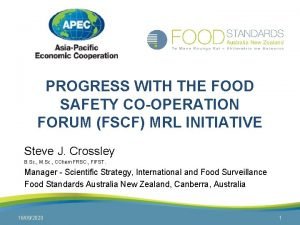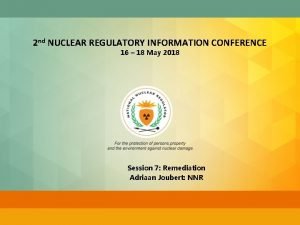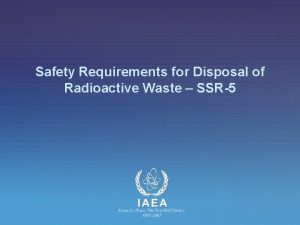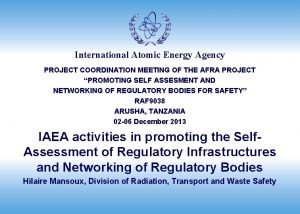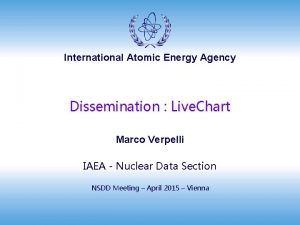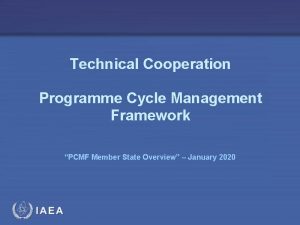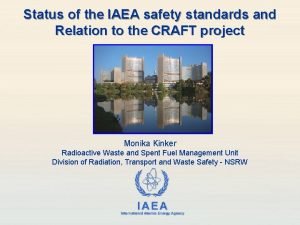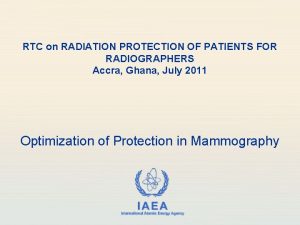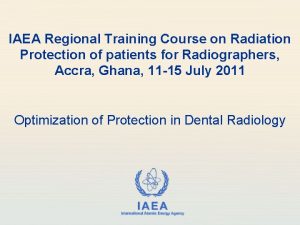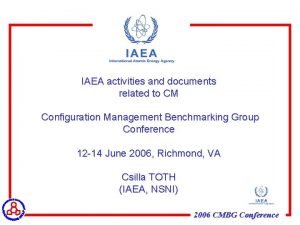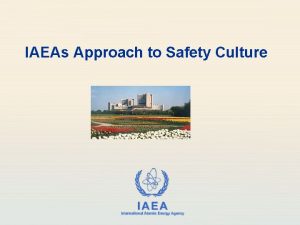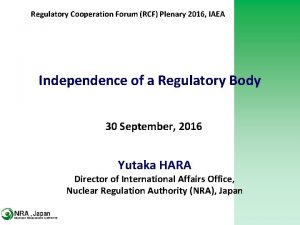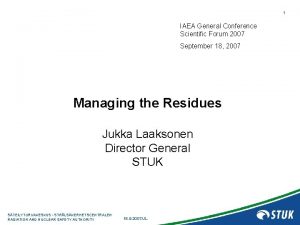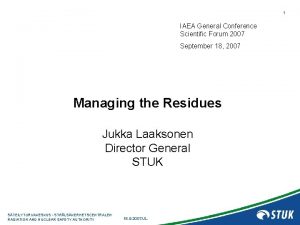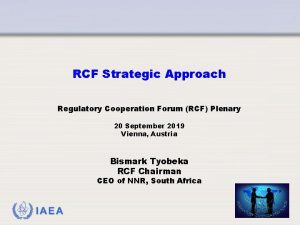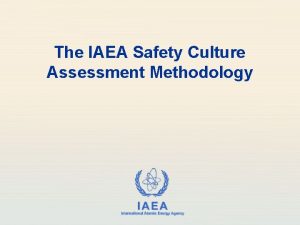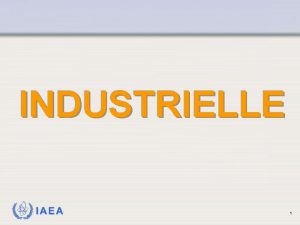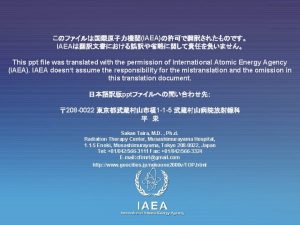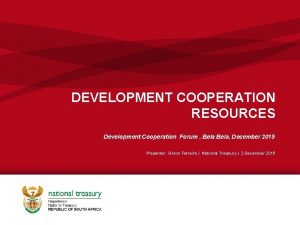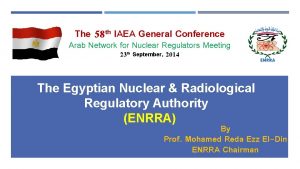IAEA General Conference Regulatory Cooperation Forum Regulatory Approach













- Slides: 13

IAEA General Conference Regulatory Cooperation Forum Regulatory Approach Prescriptive vs Performance Based David Senior Executive Director - Assurance, Policy & International

Content • Key Aspects of UK Nuclear Safety Regulation • Nuclear Site Licence • Licence Condition compliance • Regulator (ONR) Core Functions • Law, ALARP & Relevant Good Practice • Risk • Enabling Regulation approach

Key Aspects of UK Nuclear Safety Regulation • Enshrined in primary legislation: – The Energy Act – Created ONR, legal vires and responsibilities – Nuclear Installations Act – Requires licence and allows conditions to be attached – Health and Safety at Work Act – Duty of employers to workers and public • Licensee & Nuclear Site Licence: – ONR powers are primarily focused on the Nuclear Site Licensee – ONR largely regulates via Licence Conditions (36) – Licensee must have effective oversight & control of all its activities

The Nuclear Site Licence

Licence Condition compliance • ONR attaches 36 standard Licence Conditions to each licences, requiring adequate arrangements covering many topics • Arrangements to comply with licence conditions: – proportionate & pragmatic approach – phased definition to reflect stage of development – rolled out & implemented

ONR Core Functions • Inspect and evaluate safety & security culture and performance of duty holders, against legal requirements and national/international standards • Influencing duty holders to develop through life strategies that deliver sustained good practice and safety/security performance • Permitting operator activities, ensuring duty holders achieving UK legal standard • Improving the regulatory framework • Engage, inform, advise and consult duty holders and stakeholders • Enforcing the law

Law • UK Health & Safety Legislation • Health & safety at Work Act (1974) • protect employees so far as is reasonably practicable • protect others who may be affected so far as is reasonably practicable • Legal requirement is to reduce risks So Far As Is Reasonably Practicable (SFAIRP) • SFAIRP = Risks ALARP – key element of much of UK safety legislation

ALARP Justification • Licensees should: – – Demonstrate it is reasonable for nuclear safety Start with Relevant Good Practice(s) identify any shortfalls Consider if it is reasonably practicable to go further Weigh the pros and cons of various options, rather than provide a one-sided justification – Apply good and informed engineering judgement • ONR will : – Assess using guidance (NS-TAST-GD-005) – Not tell the industry what to do

Relevant Good Practice • • IAEA Safety Standards WENRA Reference Levels British, ISO, IEC, EC (etc) Standards Industry / Sector standards ONR Safety Assessment Principles ONR Technical Guidance Approved Codes of Practice

ONR Criteria for the Tolerability of Risk Unacceptable region Tolerable Region Broadly acceptable New facilities must meet BSLs High gross disproportion Long term plan needed Normal regulatory business Expectation for new facilities Policy is not to focus here

Enabling Regulation Regulators’ Code (Apr 2014). Regulators should: § Support compliance and growth § Avoid unnecessary burdens, provide advice and guidance to meet requirements § Base regulatory activities on risk § Review effectiveness of activities in delivering desired outcomes, and review A collaborative approach with duty holders, and other relevant stakeholders: § § Clear understanding of the need Establish a common purpose, take all factors into account (proportionately) Right behaviors with aim to remove blockers Seek effective delivery against clear, prioritised safety/security outcomes. ONR as a legally empowered regulator will be robust in upholding the law, using regulatory enforcement to hold to account

Conclusions • Goal Setting/Non Prescriptive regulation delivers high standards of nuclear safety • Reinforces Licensee responsibility for nuclear safety • The concept and use of “reasonably practicable” is well established • Combines risk/cost balancing (with gross disproportion) and relevant good practice (accepted standards, codes etc) • Is flexible and can be used in situations where there are no absolute RGPs covering the totality – e. g NPP

THANK YOU

